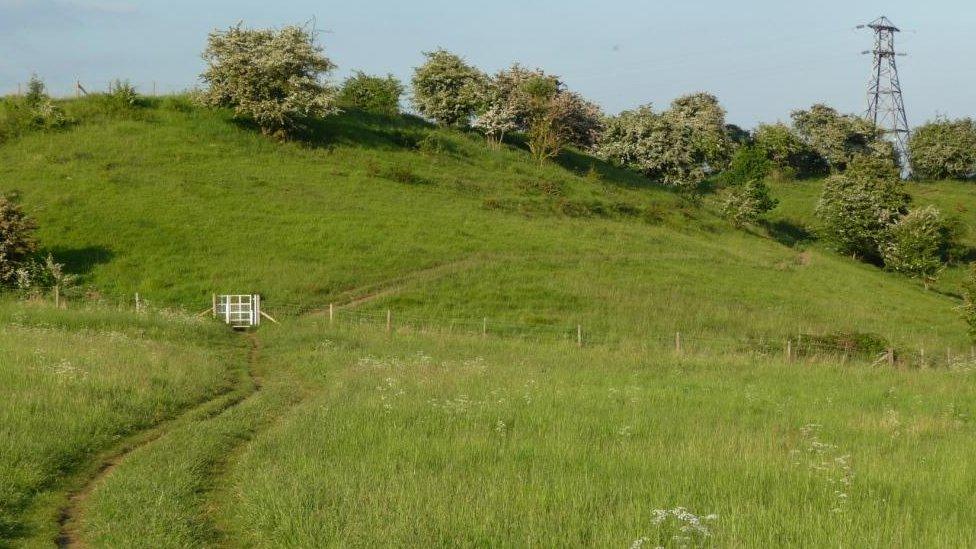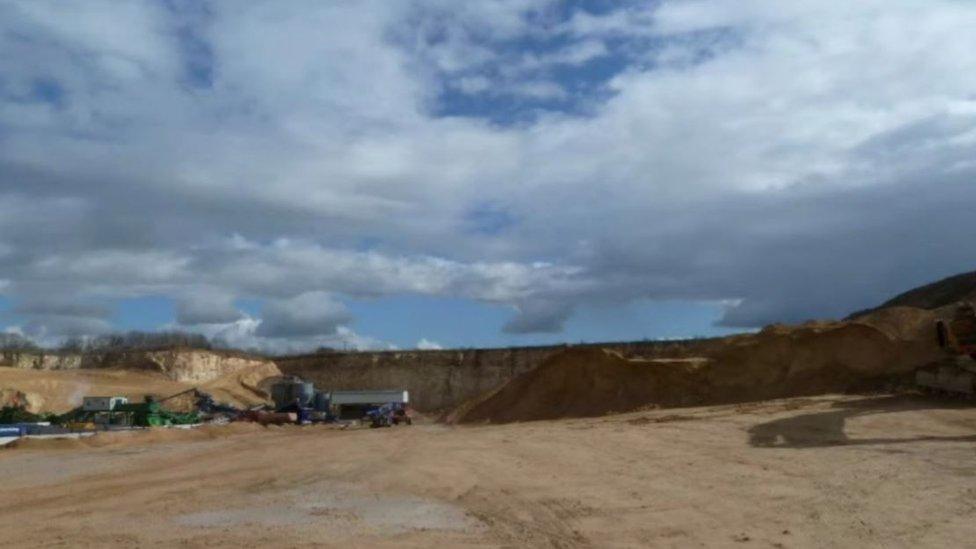Selby quarry extension near nature reserve approved
- Published

Yorkshire Wildlife Trust said Brockadale was a popular outdoor destination during lockdown
Plans to quarry 4.9 million tonnes of stone near a nature reserve have been approved despite objectors' fears about its impact on wildlife.
Went Edge Quarry, near Selby, was given permission by North Yorkshire County Council (NYCC) to expand to within 50m (164ft) of Brockadale nature reserve.
The Yorkshire Wildlife Trust (YWT) site is home to a number of rare species.
However, the quarry's managers argued the expansion was badly needed to meet the demand for housebuilding materials.
The developers also promised to restore the affected site to grassland by 2032, in a move they claimed would result in a "biodiversity net gain" for the area.
In a four-hour debate on Tuesday, planners heard there were 250 objections to the plans.
YWT and conservation charity Plant Life told councillors that Brockadale was home to rare species of flora, insects and snails which could be harmed by the expansion.
The reserve is used by universities in York and Leeds for biology field trips, such is its unique nature, said the Local Democracy Reporting Service.
Objectors said the scheme conflicted with NYCC's policy of stopping countryside encroachment and suggested the site would eventually merge with an industrial estate rather than being "restored" as promised by the quarry company.
Michael Britton, chair of Darrington Parish Council, said the reserve was "one of the most beautiful parts of our area" and he could not think "of a site that should be better protected".

There has been a quarry at Went Edge for 50 years
However, planning agent John Carlon, representing Went Edge Quarry, said any impact on wildlife would be minimised.
He said the expansion would mean 4.9m tonnes of magnesium limestone being extracted from arable fields, boosting the local economy by £2m.
Mr Carlon said it would not cause "unmanageable" risk to wildlife, with the land restored after eight years of drilling.

Follow BBC Yorkshire on Facebook, external, Twitter, external and Instagram, external. Send your story ideas to yorkslincs.news@bbc.co.uk, external.